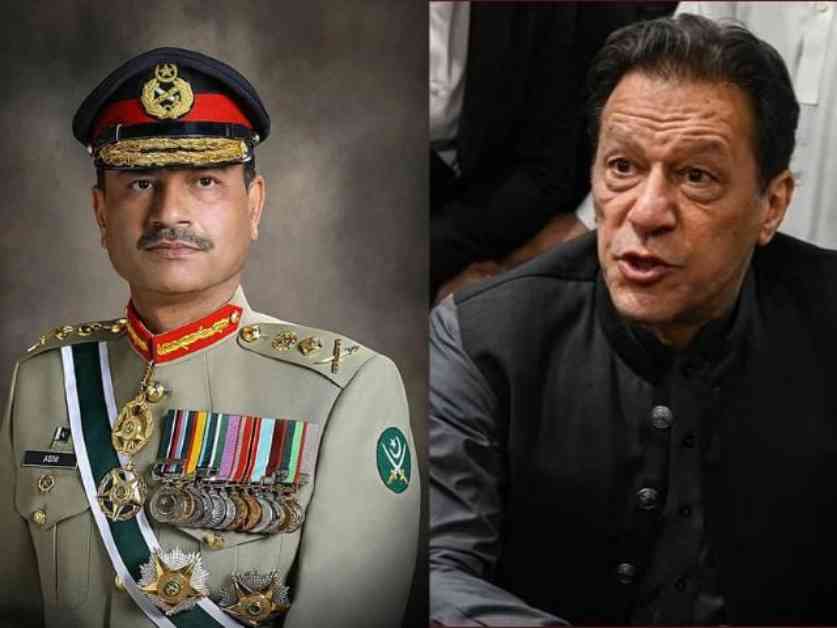Imran Khan’s Letter to Army Chief Sparks Controversy and Concern
Imran Khan, the prominent leader of Pakistan Tehreek-e-Insaf (PTI) and former cricketer, has recently made headlines for his bold move in addressing a letter to Chief of Army Staff (COAS) General Asim Munir. The contents of this letter have stirred up discussions about the country’s national security, governance, and the relationship between the military and the public.
In his letter, penned from Adiala Jail, where he is currently held, Imran Khan expresses his reservations about what he perceives as a growing divide between the establishment and the general populace. He has criticized certain policies of the military and called for a reevaluation of their approach to various issues affecting the nation.
One of the key points raised by Imran Khan is the alleged support of the establishment for individuals who have benefitted from the National Reconciliation Ordinance (NRO), a scheme that has historically shielded political figures from corruption charges. Khan also highlights concerns about Pakistan’s economic instability, the conduct of recent general elections, and actions taken against his political party.
The letter, as disclosed by PTI lawyer Faisal Fareed Chaudhry, outlines six specific areas of contention that Imran Khan wants the army chief to address. These include the impact of existing strategies on public sentiment, issues related to the Protection of Electronic Crimes Act (PECA), and the treatment of PTI by state institutions and intelligence agencies.
Imran Khan’s letter is seen by many as a direct appeal for a change in policy direction, emphasizing the importance of unity between the nation and its armed forces. While PTI leaders have welcomed this move as a step towards accountability and reform, the government has yet to issue a formal response, and the military has remained silent on the matter.
### Imran Khan’s Plea to the Judiciary
In addition to his correspondence with the army chief, Imran Khan recently penned a lengthy 349-page letter to Chief Justice Yahya Afridi and Justice Aminuddin, shedding light on alleged human rights violations, electoral fraud, and the mistreatment of PTI workers. This detailed account accuses the government of coming into power through fraudulent means and perpetuating a regime of oppression against the party.
Within this letter, Khan recounts incidents of forced disappearances, injuries, and extrajudicial killings of PTI members, particularly surrounding a specific date in November of the previous year. He also points to instances where hospital records were reportedly tampered with to distort facts and manipulate evidence against his party.
Imran Khan’s scathing critique of the judiciary for its failure to address election fraud and human rights abuses reflects a deep frustration with the current state of affairs in Pakistan. The persistent mistreatment of PTI workers, according to Khan, underscores a broader pattern of injustice and suppression under the ruling government.
As the public awaits responses from the concerned parties regarding these letters, Imran Khan’s outspoken stance against perceived injustices and improprieties continues to fuel debates and discussions within the political landscape of Pakistan. His unwavering commitment to transparency, accountability, and fairness remains a cornerstone of his political activism and advocacy for change.
Imran Khan’s letters to key figures in the military and judiciary represent more than just written correspondence—they are powerful statements of dissent and demands for justice in a complex and evolving socio-political environment. The implications of these missives are far-reaching, signaling a potential shift in how power dynamics and governance are scrutinized and challenged in Pakistan.









